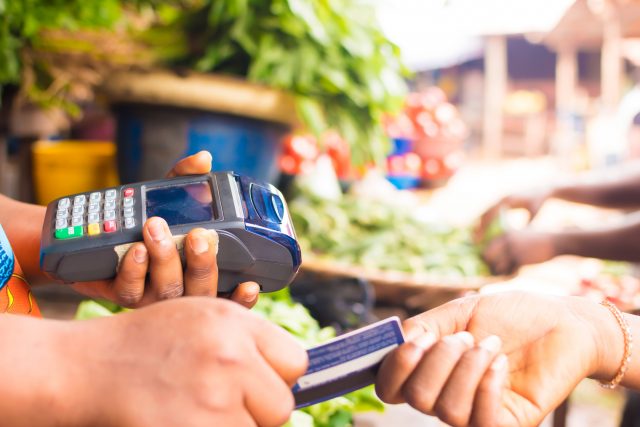While Africa has so far avoided the worst of the health consequences of the coronavirus, relative to other parts of the world, the pandemic has laid bare the underlying market fragility across the continent.
The pan-African economy is enduring its first extreme recession in 25 years, pushing per capita GDP down 10% in nominal terms to levels last seen in 2013. Very little if any fiscal rescue came from Treasuries to consumers, workers, and civil servants across Africa to cushion the economic blow that followed the pandemic response.
The hardest hit are workers in the informal sector, which makes up 90% of the economy and 60% of the workforce, according to the International Labor Organization. Financing to these informal micro, small and medium sized enterprises (MSMEs) was already severely limited – the finance gap was projected at $330B in 2019, according to the IFC – which has perpetually choked MSME growth.
As the world looks to build back better, how do we improve financing to the private sector engine of the African economy? One critical answer: scaling MSME information accessibility through digitization. As digitization increases, the discoverability of opportunities and overall market transparency increases, which lowers the cost of doing business and makes growth financing less proximity-dependent. Private markets grow based on this enabling formula.
The innovators have arrived
There are two core routes to the MSME digital transformation: tech-enabled innovation and policies that reframe the benefits of formalization.

A strong signal toward better market efficiency is Africa’s ongoing fintech revolution, which is creating billions of dollars in new enterprise value in 2021 alone, and increasingly pulling new venture capital flows into the continent.
This year has seen the emergence of three fintech unicorns on the continent – Flutterwave, OPay and, most recently, Wave. The result is a positive feedback loop for economic development, as the financial inclusion tech scales MSME trading, and entrepreneurs are forced to innovate deeper into the information supply chain (i.e. Know-Your-Customer, credit scoring, etc). This cuts the cost of doing business and removes trade friction, attracting more venture capital along the way and inspiring new African entrepreneurs to solve new problems.
The right policies to formalize
On the policy side, MSMEs are generally lacking a suitable enabling environment to support their growth. A large proportion of the continent’s MSMEs understandably have little incentive to formalize due to a combination of perceived tax burdens and costly compliance requirements to enter the formal market. Yet without formalization, the MSME segment remains stunted, as it’s considered a high-risk asset for both local and global creditors.
As Africa embarks on the challenge of building the world’s largest free trade area, it’s an exciting time to rethink how best to drive inclusive growth

It’s also harder to tax them, lend to them, trade at scale with them or even identify them. The result is that nearly half of Africa’s GDP and over half of its labour pool are caught in stagnated growth, despite the continent’s demographics and natural resources acting as strong economic drivers.
If governments support formalization by rebranding around the incentives, MSMEs can see a pathway to gaining leverage. Governments can do so in a number of ways, by allocating more meaningful budget toward:
- Credit guarantee schemes to financial institutions that can scale credit to MSMEs;
- Building APIs across ministries and private sector associations that can easily share
data and generate market intelligence available to all market stakeholders; - Tech-enabled capacity building and educational programs that can prepare large
volumes of MSMEs simultaneously for competing in larger supply chains.
As Africa embarks on the challenge of building the world’s largest free trade area, it’s an exciting time to rethink how best to drive inclusive growth. Scaling access to corporate data should form part of the foundation for change. The continent’s brightest entrepreneurs are proving that unicorns can be African, and as they find product-market fit during Africa’s digital transformation, growth in the wider MSME economy will accelerate. Said growth will take off even faster with the right policy support from Africa’s most innovative governments.
Published Date: October 04, 2021
